Did you know that WordPress is the most commonly used content management software? In fact, over 64% of websites rely on WordPress to manage their content, which amounts to a massive 40.6% of all websites on the internet!
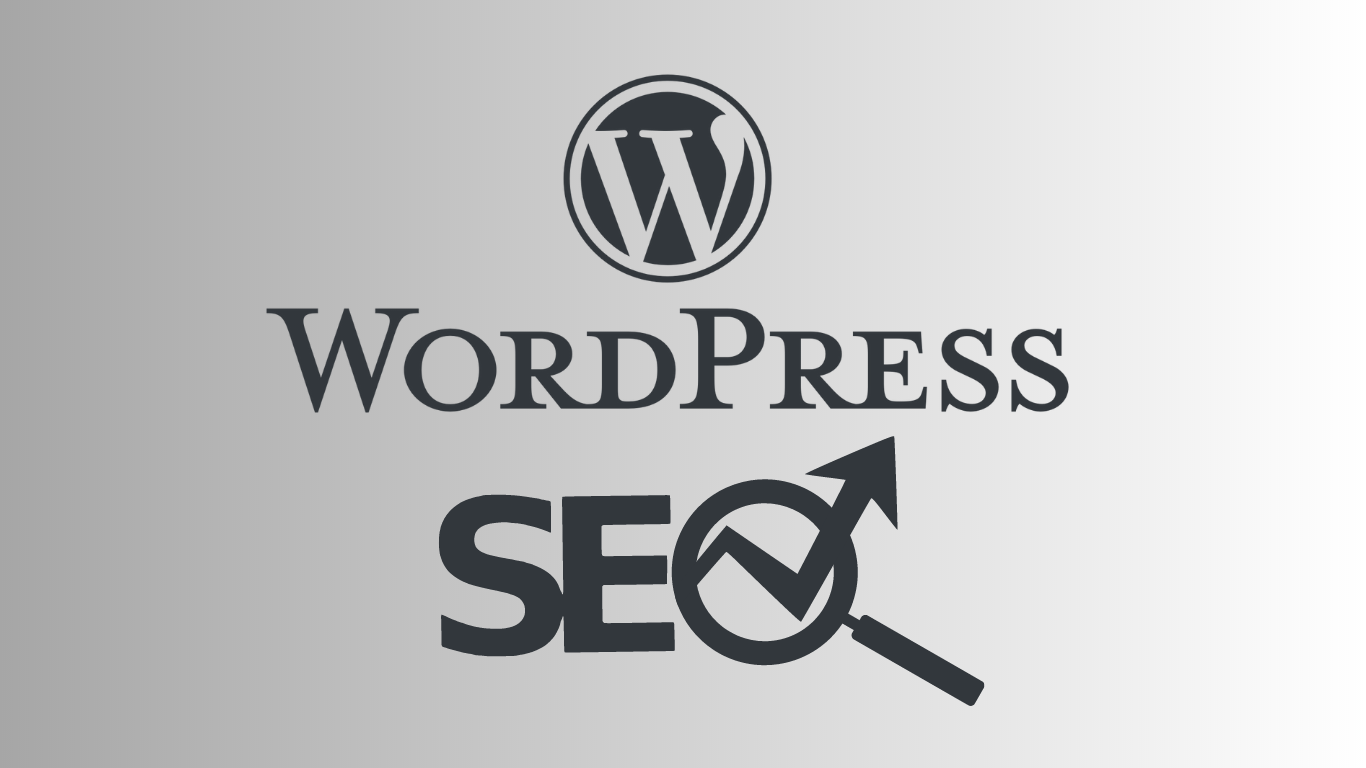
This open-source system is incredibly versatile and can be used to build a wide range of websites, including portfolios, blogs, and online stores. With WordPress, it’s simple to organize, manage, and publish your content in a way that’s optimized for SEO. Plus, WordPress.com websites are automatically optimized by default, thanks to a unique feature of the software.
Page Contents:
How to Optimize Your WordPress Site for Better SEO Results?
Learn how to effectively optimize your WordPress website for SEO with these valuable tips. While the software may automatically optimize your site, there are additional steps you can take to further improve your WordPress SEO results.
1. Ensuring the well-being of your WordPress site
The WordPress site health tool is a useful tool for monitoring your website’s overall performance. By analyzing the reports and information provided, you can plan a successful SEO strategy for your WordPress site. The site health feature is divided into two parts: the status screen and the info screen.
The status screen highlights critical issues with your WordPress configurations, offering suggestions for improvement and presenting passed tests.
Meanwhile, the info screen displays information about your WordPress site’s configuration, including the version of WordPress in use, the number of active and inactive plugins and themes, and technical details about the server setup, database, and permissions.
2. Visibility in search engines
It is important to ensure that your website can be found by search engines. WordPress provides the ability to hide your site from search engines, so it is essential to check your visibility settings.
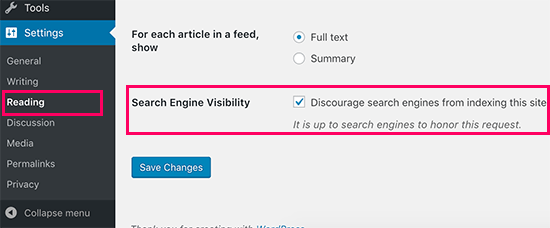
There are three options: “coming soon,” “public,” and “private.” If you choose the “public” option, your website will be visible to everyone. However, it may take 4-6 weeks for search engines to discover your site after making it public.
3. Optimize permalinks
When creating links for your website, it’s important to use permanent links, also known as URLs. Here are some tips to keep in mind:
- Incorporate the target keyword into the URL structure.
- Avoid using dates or years in the URL.
- Use hyphens instead of underscores.
- On larger sites, include categories.
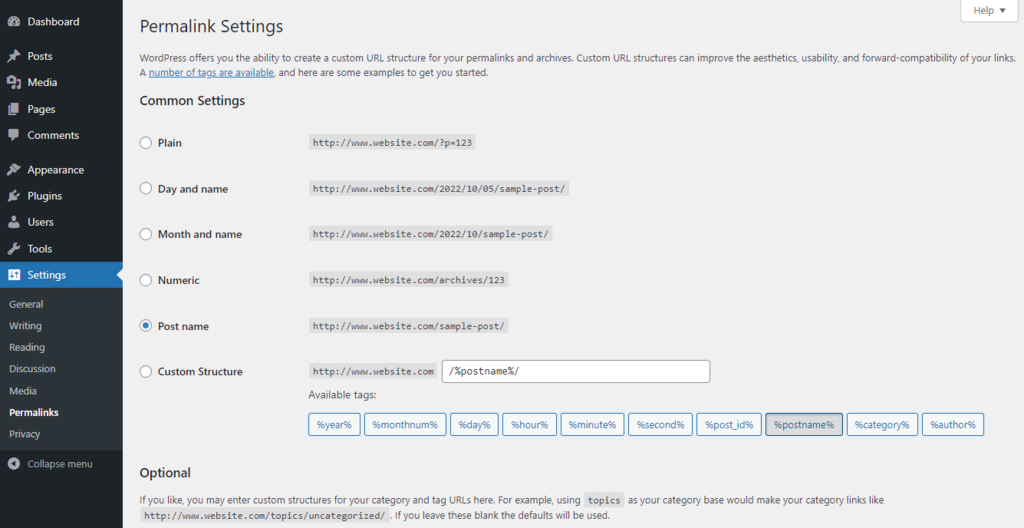
If you need to update your permalink structure, you can do so by going to the settings options and selecting the permalinks option. From there, you can customize your URL or permalink.
4. Use the updated version of PHP
PHP is a hypertext preprocessor programming language that allows users to make high-power content. Since it’s a complicated language, it can have a positive effect on SEO. PHP is responsible for running your website hosting server and making WordPress work.
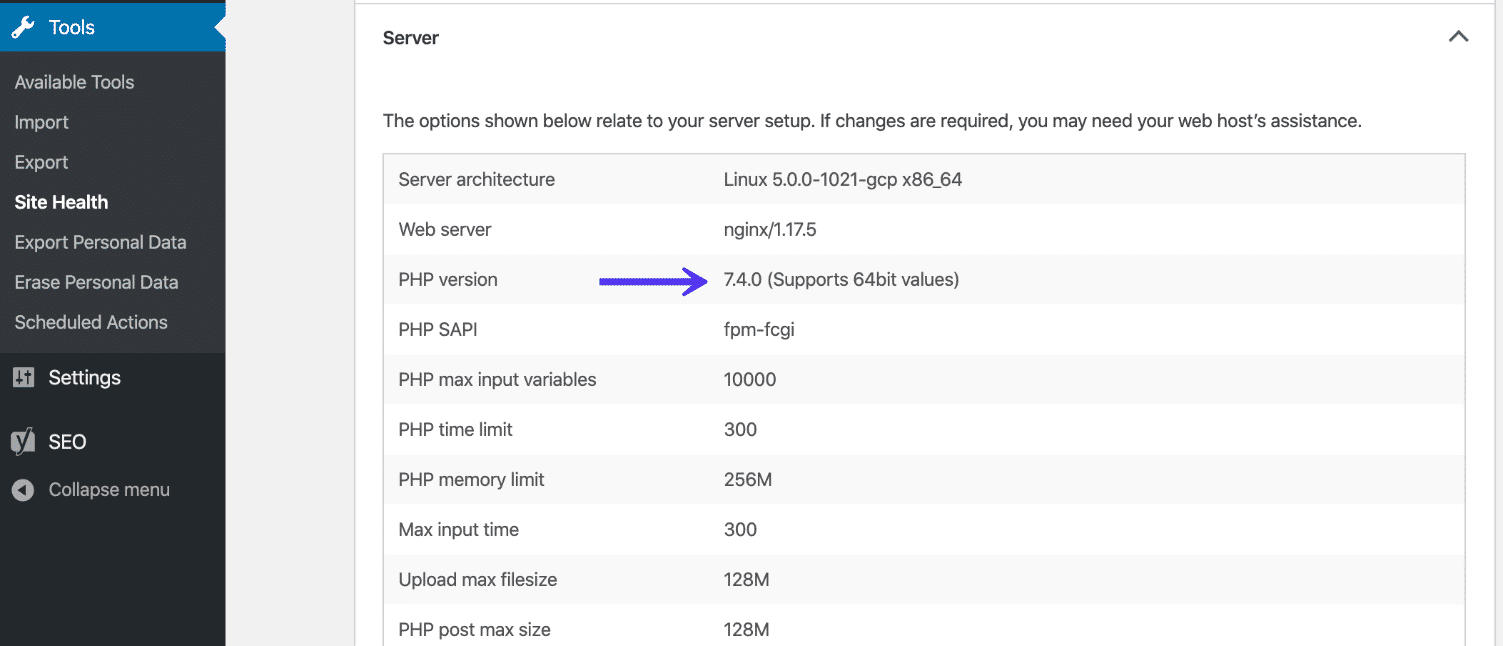
All WordPress users should use the latest version of PHP. WordPress does not support PHP versions older than PHP.5.6.20. The latest versions of PHP 7+ have many advantages:
- Boost the speed
- Makes your site run more efficiently
- Brings modern development features
- Safer and more secure than before
Before you update the PHP version, check the current WordPress PHP version, create a backup of your WordPress site, and update WordPress cores, themes, and plugins. To ensure a successful PHP update follow the following steps:
-
- Click on the panel
- Go to advance and then click PHP configurations
- Select the desired PHP version
- Click Update
- Click Confirm
- Your PHP is updated
5. Ensure the security of your website
A secure site will get high rankings in SERP. the two most important site certifications are SSL and HTTPS. These two are the most secure and trusted systems a website should have.
SSL stands for secure sockets layer. It is used to protect the internet connection by encrypting data sent between the web browser and the website. Companies must have an SSL certificate to secure online transactions and keep the user’s information safe.
HTTPS is the short form of hypertext transfer protocol secure. The protocol secures communication gateways and data transfer between the user’s browser and website.
6. Optimizing WordPress themes
WordPress themes are templates, code files, and stylesheets that are used to modify a WordPress layout design. The theme does not make any changes to the core website or modify the layout. The themes are the best tool to make a distinct online presence.
Optimizing themes is customizing, enhancing, and editing WordPress website design. These improve the speed and performance of the website, help in a higher ranking on the SERP, mobile optimization, and better user experience.
Choose a fast-loading WordPress theme. Bulky themes will give take time to load and will increase the bounce-back rate. Hence while choosing a theme pay attention to the size and loading time.
7. Optimizing images for WordPress SEO
Image optimization is essential for WordPress SEO. An unoptimized image will take more time to load. an optimized image will increase the page speed, enhance the user’s experience, improves the SEO, rank higher in the SERP, and saves disk space. To optimize your image you may follow these steps:
- Compress the word press image: Compressing images will reduce the file size and increase the loading speed. The quickest and easiest way to compress images is to use plugins. We will be discussing these plugins later.
- Resize image: You can also resize the pixels for optimizing an image. By default, WordPress has four types of image sizes. You can adjust them according to your requirement: the four types of image sizes are as follows:
-
- Thumbnail (150 x 150 pixels)
- Medium (up to 300 x 300 pixels)
- Large (up to 1024 x 1024 pixels)
- Full Size (the original image size)
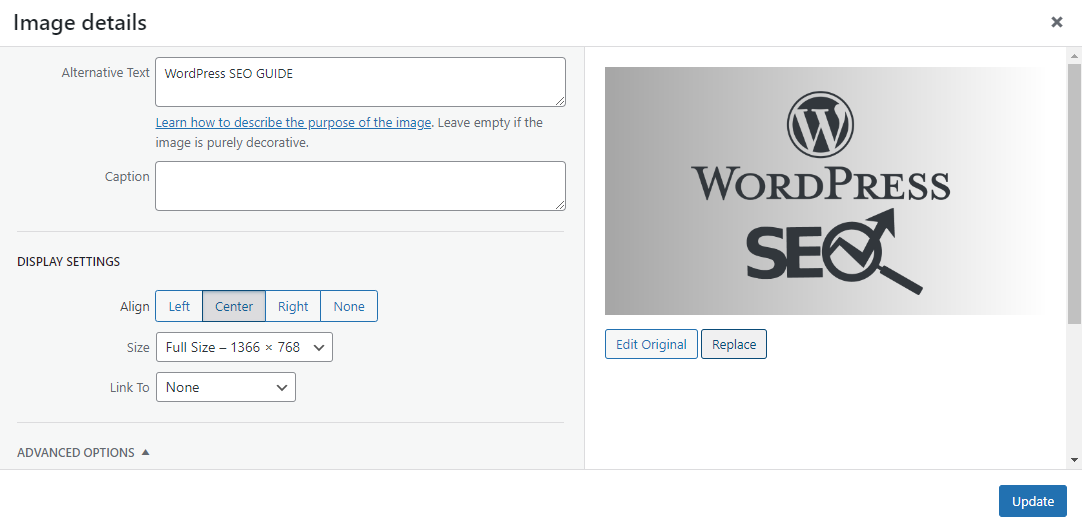
- Share images through the CDN network: CDN stands for central display network. The CDN system performs real-time optimization operations such as re-sizing, compressing, etc. The WordPress website using the CDN route distributes its images from the origin servers to the edge servers.
- Format your WordPress media library: In your WordPress media library there may be many unused images from deleted blogs etc. Overloading unused images will make your site slow. Clean your website’s media library regularly.
8. Improve sitemaps
WordPress automatically generates the sitemaps for your websites. you can create and optimize sitemaps using various plugins available. sitemaps should be every time you add or remove any page. XML sitemaps are the files of codes having all the pages your website has. These help search engines figure out your website’s content.
8 Best WordPress Plugins For SEO
WordPress plugins can completely transform your website. These plugins have made it so much easier to manage and customize the site, and I highly recommend them to anyone who wants to take their WordPress site to the next level.
1. Yoast SEO
One of the favorite plugins is called Yoast SEO. This plugin helps to optimize content for search engines, making it easier for potential customers to find websites. It also provides helpful suggestions for improving the content and making it more engaging.
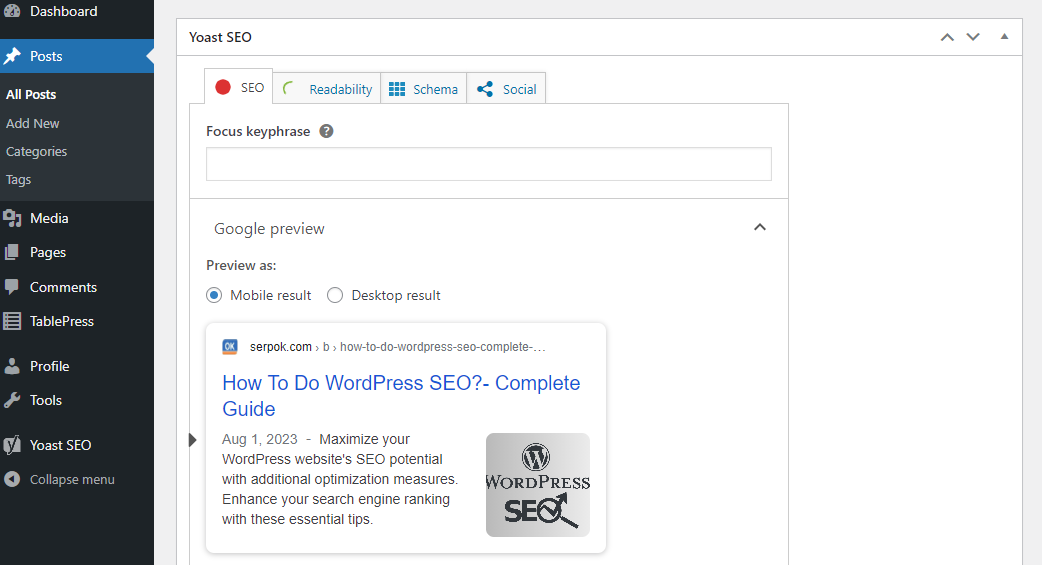
Yoast SEO has nearly all the features to optimize a website. In addition to content and SEO analysis, there are many other features such as the following:
- It can create and submit XML sitemaps
- Edits meta descriptions
- Sets canonicals to avoid duplicate content
- Optimize your accelerated mobile pages
- Customize title tags, open graph tags, meta robots tags
- It can help you determine how well your page is optimized for a keyword
- Analyzing the readability of your blog
2. Broken Link Checker
Another great plugin is the broken link checker. This plugin with 20x faster link checkers offers a wide range of features. broken links are a major problem for almost every website. It’s a must-have for anyone who wants to keep their site running smoothly and attract more visitors.
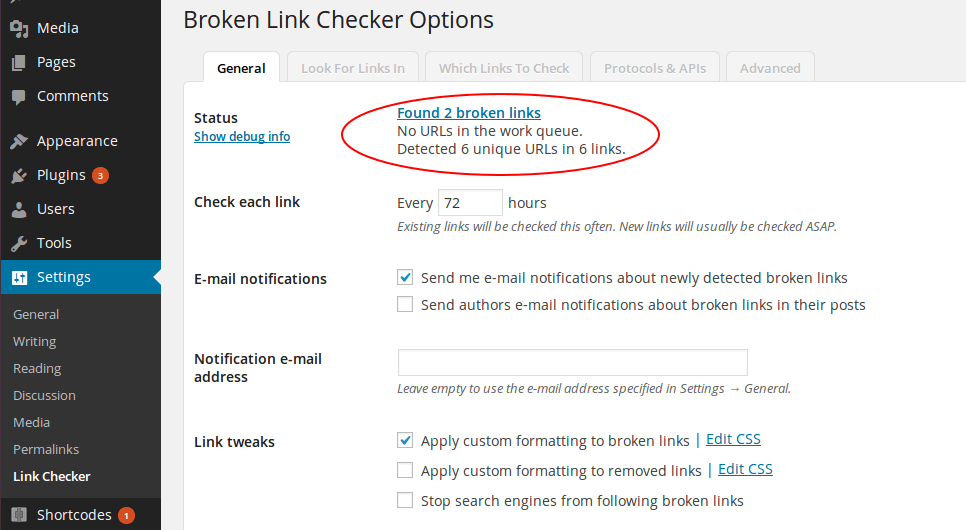
Broken link checker has a unique feature where it provides 2 engines based on your need. These two engines cloud based checker and local link checker provide the fastest and most accurate results.
- Cloud-based link checker: cloud-based link checker is cloud-based and built on WPMU DEV’s servers. The features of this engine are:
-
- 20x more checking speed
- Unlimited pages and URLs checks
- Crawls every URL without fail
- Checks sites and URLs of every size
- Comparatively very few errors
- Doesn’t checks the IP address
- Local link checker: The local link checker uses your site’s resources to analyze your content’s broken links status. It also uses your IP address, so the risk of getting inaccurate scan results increases. Some features of this engine are:
-
- Monitors all links in your content and custom fields
- Detects broken links, missing images, and redirects, which saves you time and improves the user experience on your website
- You can receive notifications about the tool’s performance either through your dashboard or via email.
- It can make broken links display differently in posts
- It can also prevent search engines from following broken links.
- The tool helps to search and filter links by URL, anchor text, and more.
- It edits links directly from your interface, without manually updating each post.
3. Google Search Console
Google Search Console has been a game-changer for websites. It provides valuable insights into how a site is performing in search results and identifies any issues or errors that need to be addressed.
With Google Search Console, we can monitor a site’s search traffic, see which queries are driving the most traffic, and even identify the specific pages that are ranking well.
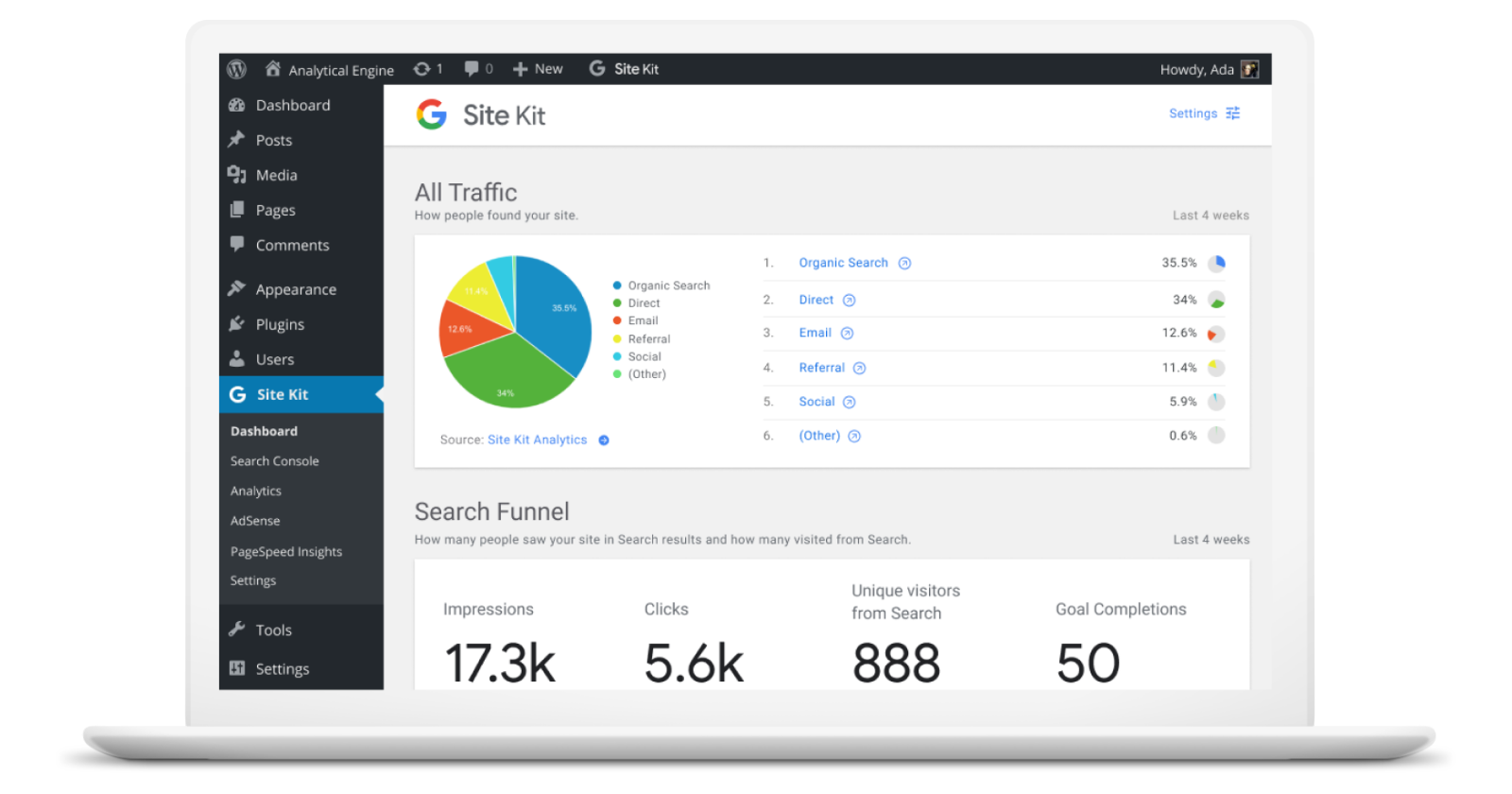
Search console WordPress plugin displays Search Console analytics data directly on the WordPress dashboard. This allows us to easily see metrics like Clicks, Positions, CTR, and Impressions. Additionally, the plugin adds the necessary verification code from Google Search Console to my site. The features are:
- Easy site ownership verification
- Filter date, page, query, devices, etc.
- Shows full reports with data like sitemaps
- Adds meta boxes on pages or posts to show performance
4. SEOPress
SEOPress is a must-have tool for any WordPress website. With its powerful features, SEOPress can help you boost traffic, create custom HTML and XML sitemaps, and generate optimized breadcrumbs that make it easier for visitors to navigate your site.
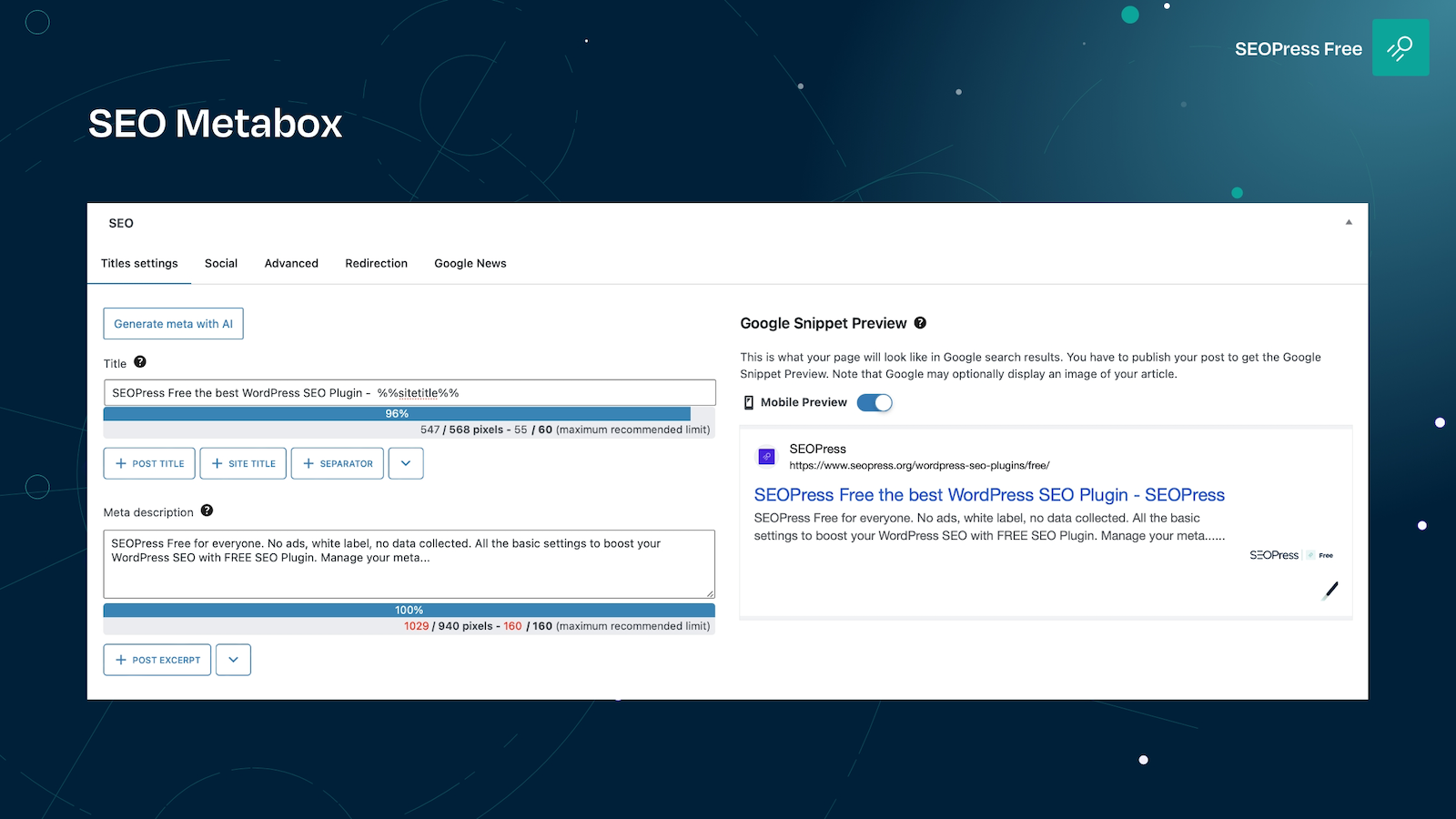
This tool helps to save time and money while providing all the necessary features for WordPress SEO. It is also user-friendly and simple to utilize. the plugin has paid and free features. There are so many features available, let’s discuss some features here:
- Helps in search engine indexing
- Conducts content analysis for unlimited keywords
- Shows a preview that how the page or post will look on search engines or social media platforms
- Generates custom canonicals, URLs, meta descriptions, title tags, etc.
- Conducts image SEO
- Detects and improves redirections and many more.
5. Rank Math SEO
Rank Math is an exceptional tool that has proven to be consistently effective in driving traffic to websites. Its advanced features are so intelligent and powerful that it feels like having a dedicated SEO team working. Here are the amazing features of Rank Math:
- Rank math provides a step-by-step installation and configuration wizard that sets up SEO for WordPress perfectly.
- Rank Math makes configuring Schema Markup easy with over 16 types, including Rating Schema. Displaying rich snippets in Google search results is now possible, leading to increased traffic.
- It optimizes content for unlimited keywords
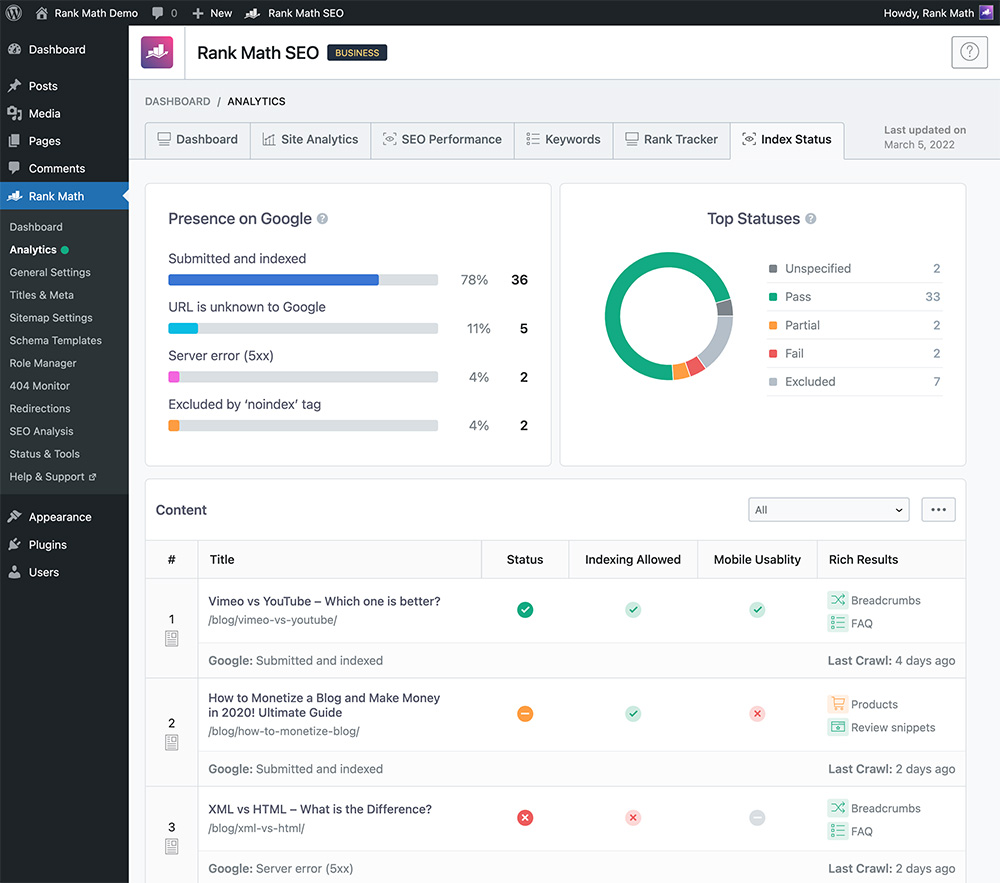
- Rank Math’s AI-powered assistant simplifies creating SEO-friendly content, helps to produce top-notch content
- It can also integrate google search console, google keyword rankings, and google analytics to get all the data to improve SEO
- Monitors and informs about all the errors
- It can perform media optimization and many more SEO practices.
6. Jetpack
Jetpack is the ultimate tool to optimize your WordPress website’s security, performance, marketing, and design. It has been developed by WordPress experts to ensure that your website is not only faster and safer but also attracts more traffic.
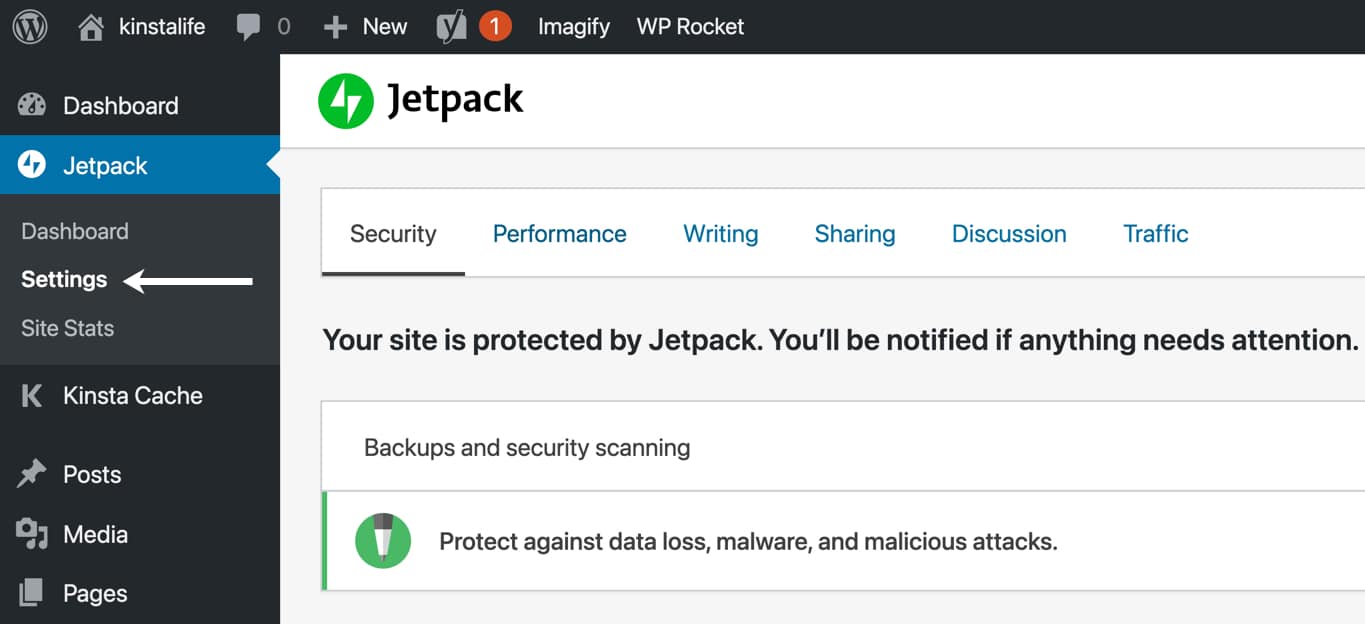
With its advanced security features, Jetpack can effectively prevent hackers and malware from attacking your site. Additionally, Jetpack offers performance tools that enhance your site’s speed and overall performance.
7. Ahrefs Plugin
The Ahrefs plugin is an automated tool designed to help attract an organic audience through content audits. Unlike other plugins, Ahrefs focuses primarily on content audits, making it a great complement to other tools. Some of its key features include:
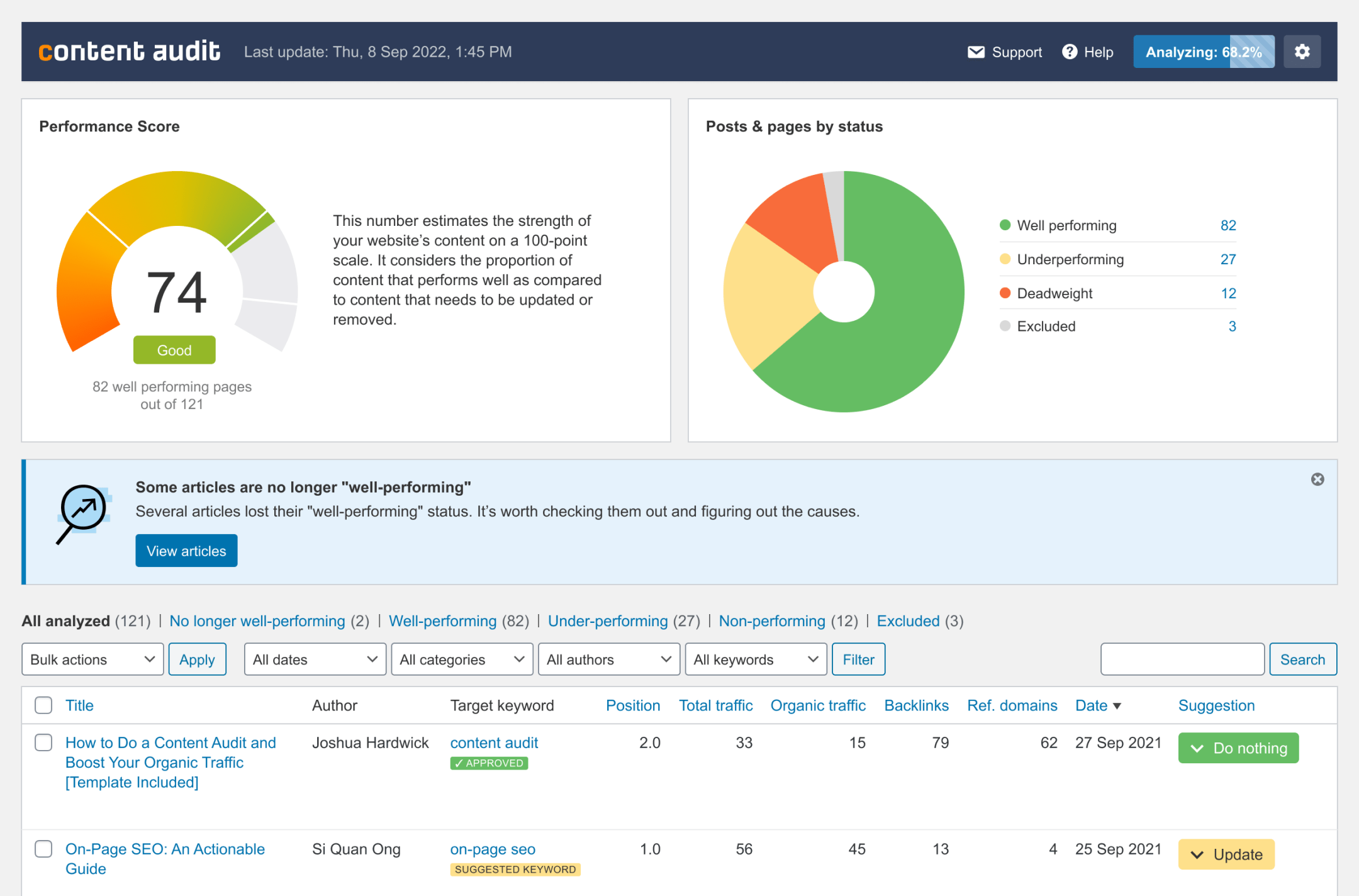
- Conducting content audits of your website and providing actionable suggestions for improvement.
- Categorizing pages into three groups – well-performing, underperforming, and non-performing – based on their page performance.
- Integrating with Google Analytics and Google Search Console to provide targeted keyword suggestions.
- Being super fast and putting a minimal load on WordPress.
- Being easy to set up and configure.
8. Monster Insights plugin
The Monster Insights plugin makes it easy to integrate Google Analytics with WordPress, and it’s one of the most popular plugins for this purpose. With just a few clicks, you can enable all of the advanced tracking features that Google Analytics offers.
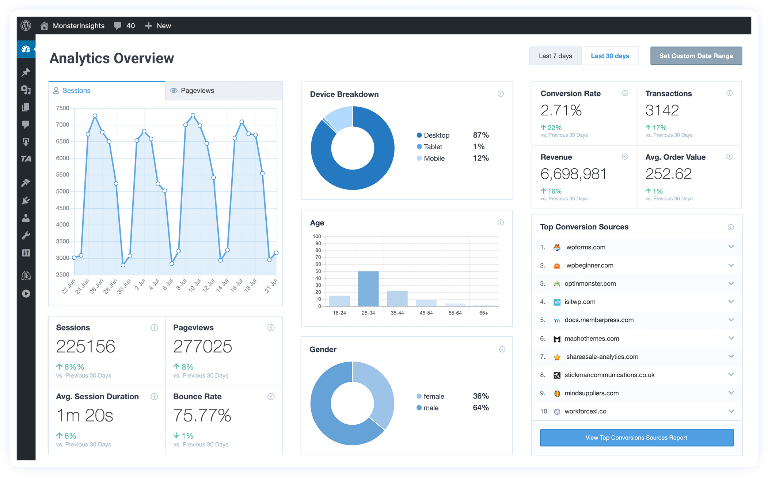
The plugin also comes with a built-in dashboard that shows actionable analytics reports within your WordPress dashboard. This includes real-time tracking for things like ad conversions, e-commerce, and affiliate marketing.
You can also access all of Google Analytics’ features directly from the WordPress dashboard. Overall, Monster Insights makes it simple to set up and manage Google Analytics on your WordPress site.
Wrapping up!
Here’s a quick summary of the guide to improving your WordPress SEO:
1. Choose a reliable hosting provider and install WordPress.
2. Install and configure an SEO plugin, such as Yoast SEO or All in One SEO Pack.
3. Optimize your website’s structure, including the use of categories and tags.
4. Use relevant and engaging content, including headlines and meta descriptions.
5. Optimize your images and use alt tags.
6. Build quality backlinks.
7. Monitor and analyze your website’s performance using Google Analytics.
By implementing these tactics, you can improve your website’s ranking on search engines and attract more traffic.